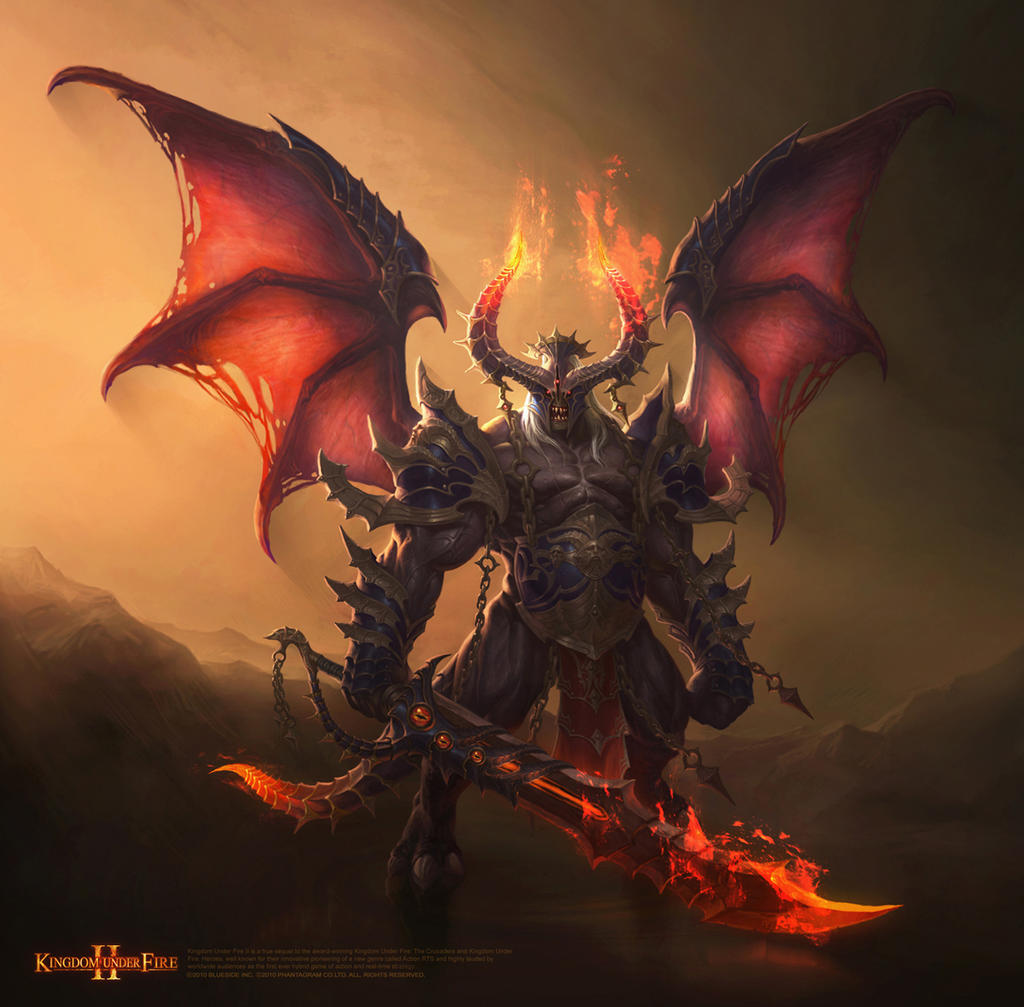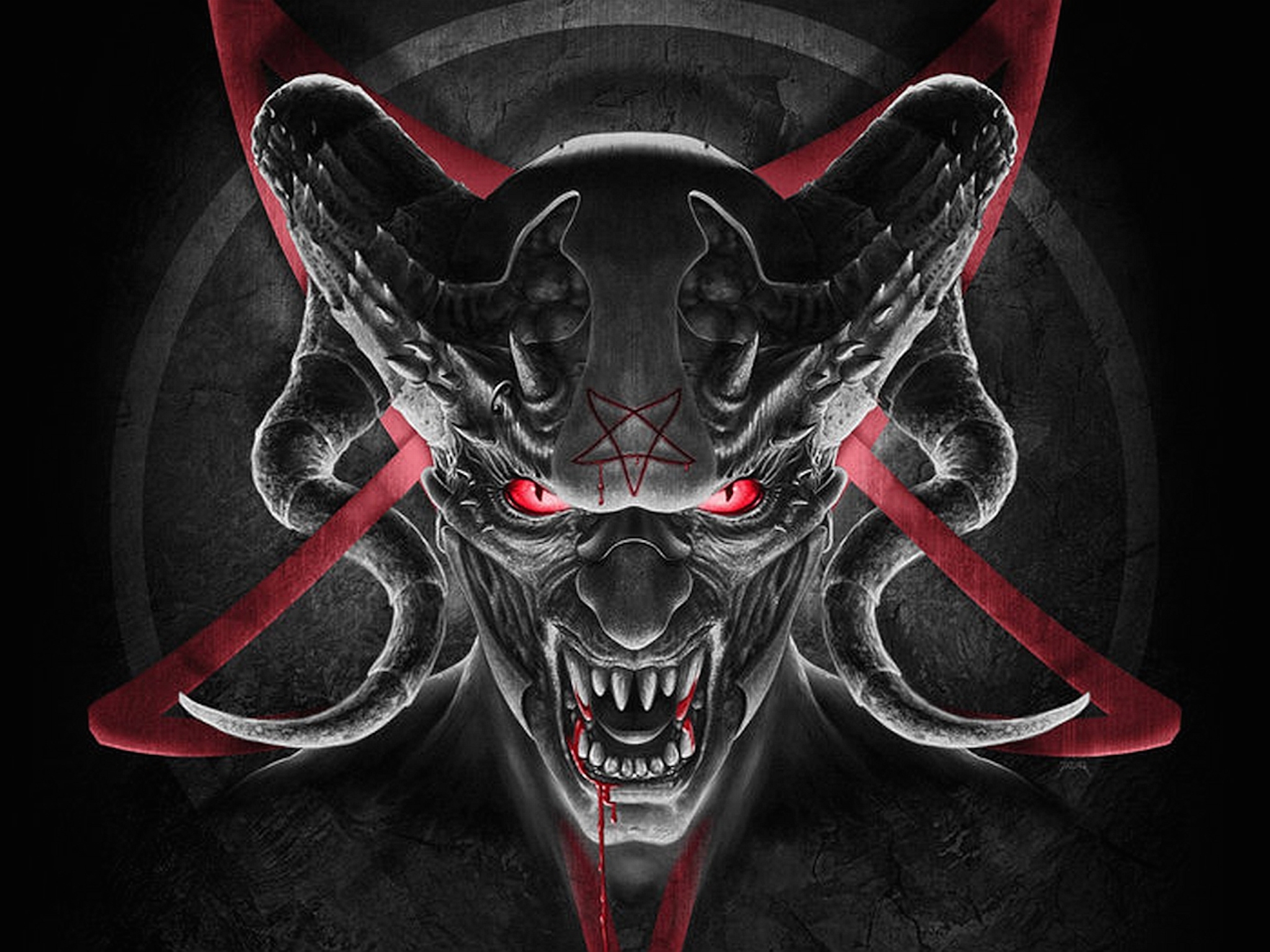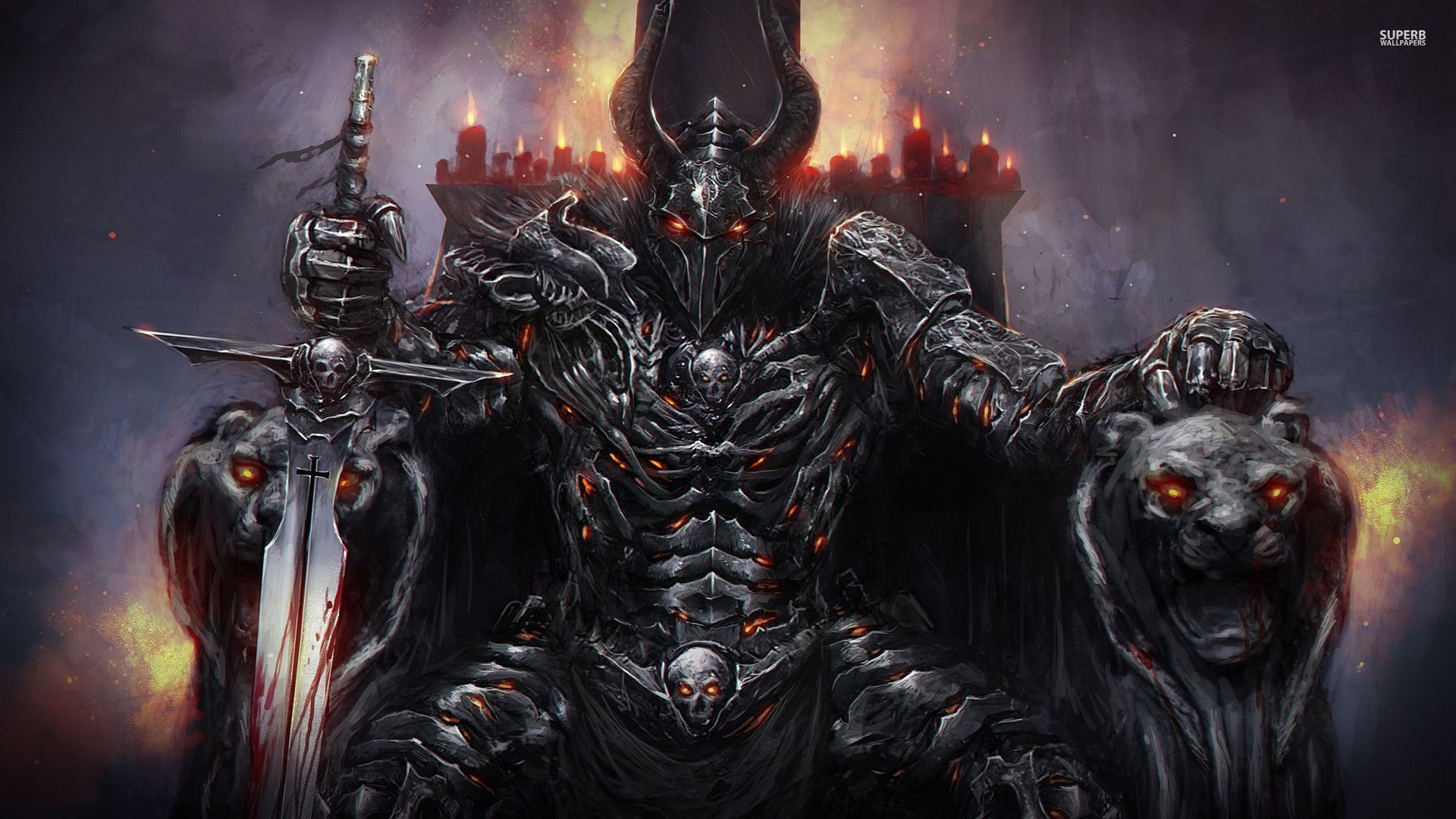Unpacking The Demon Boy Saga: Game Insights And The True Meaning Of 'Demon' Vs. 'Devil'
Have you ever found yourself caught in a conversation about supernatural beings, perhaps even getting a bit mixed up between terms like "demon" and "devil"? It's a rather common thing, you know, to use them interchangeably. Apparently, though, this can lead to some spirited discussions, as one person recently discovered after being chided for treating "恶魔" (evil spirit) and "魔鬼" (devil) as synonyms. This little linguistic stumble, it seems, highlights a much broader fascination with these concepts, especially when they pop up in popular culture, like in the intriguing narrative of the "Demon Boy Saga."
This particular confusion, actually, stretches back through long-standing Western traditions. People often wonder about the specific roles and meanings attributed to these powerful figures. Is there, for instance, a true hierarchy or a different kind of essence that sets them apart? Many works of fiction, including games, often play with these ideas, sometimes blurring the lines, sometimes drawing them very sharply. So, in a way, understanding these distinctions can really enrich how we appreciate stories that feature such characters.
Today, we're going to explore the fascinating world of the "Demon Boy Saga," a game that, quite frankly, brings these supernatural elements right into its core story. We'll also take a little detour to clear up that age-old question about what truly separates a "demon" from a "devil" in traditional Western thought. You might be surprised by some of the subtle differences, and how they connect to the game's themes. This discussion will, perhaps, help you avoid any future linguistic mishaps, and also give you a deeper look into a popular game. So, let's get into it, shall we?
- Joe Pesci Health A Comprehensive Look At The Iconic Actors Wellbeing
- Moderno Sombreados Cortes De Cabello Hombres
- Iran And Pakistan Map
- Unistar Two Babies One Fox
- Lagos Cerca De Mi
Table of Contents
- A Closer Look at the Demon Boy Saga Game
- The Development Journey and Updates
- Demon vs. Devil: Unraveling the Linguistic Puzzle
- Influence, Possession, and Protection
- Faith and Its Power in Facing the Supernatural
- Wrapping Things Up
- Frequently Asked Questions About the Demon Boy Saga
A Closer Look at the Demon Boy Saga Game
The "Demon Boy Saga" is, in essence, a visual novel or SLG (Simulation Game) that draws players into a rather unique premise. It puts you in the shoes of a young college student. This student, you see, lives in a house that's also home to some beautiful women. Things take a sharp turn, though, when a financial situation hits. This event, apparently, changes everything for the protagonist, who then, quite cunningly, plans to use this catastrophe to his own advantage. It's a setup that promises a story filled with personal stakes and perhaps some morally grey choices, which is pretty common in these types of games.
The game, in its various versions, offers a narrative where a once well-off and stable family faces an economic disaster. For many, this would be a complete downfall, but our main character, the "demon boy" himself, sees an opportunity. He's ready to exploit the unfolding events for his own gain, which, in a way, sets a rather intriguing tone for the gameplay. It suggests a story where adversity is met not with despair, but with a calculated effort to benefit from the chaos, and that's something a lot of players find compelling.
As a player, you'll navigate through different scenarios, making choices that shape the story. The game, it seems, also includes elements like "avoidable NTR" (Netorare, a genre where a character's partner is taken by another), which might require specific passwords to access certain parts of the game. This feature, obviously, adds layers of complexity and choice for players, allowing them to tailor their experience. It’s a game that, in some respects, seems to offer quite a bit of player agency within its story framework.
- Ymaal
- Which Country Colonized Iran
- Desmond Doss The Unyielding Spirit Of A Conscientious Objector
- Aisah Sofey Leaked
- Iran President Vs Supreme Leader
The Development Journey and Updates
The creation of "Demon Boy Saga" has, apparently, been quite a journey, marked by both progress and, well, some complications. The developers, Reidlogames, have been sharing updates on platforms like Patreon and Itch.io. For instance, version 0.67 was released, with the creators expressing hope that players would enjoy it despite the delays. This kind of transparency about development hurdles is, actually, something many players appreciate, as it gives them a glimpse into the creative process.
Updates have been rolling out, adding new content and continuing the story. Version 0.66, for example, brought over 450 new renders and three new animation scenes. It also continued the storylines for characters like Sophia, Erica, and Lucia. Then, there was a small update focusing on Erica, adding 190 new renders and two new animations. These incremental updates, you know, are typical for games in early access, showing a commitment to expanding the world and its characters.
More recently, version 0.71 finally made its appearance after what were described as "endless problems." This suggests the development team has faced significant challenges, yet they persist in delivering new content. The game also has a premium version with new scenes, initially for "big demons" and "demons" tier members, which is a common model for supporting independent game development. This ongoing release of content, more or less, keeps the community engaged and looking forward to what comes next.
However, it's worth noting that some feedback suggests the game has had its share of issues. Some players have pointed out that the content can feel a bit sparse, and the English language support isn't always the strongest, which might limit its reach. There have been concerns about low dynamic frame rates and rendering quality, leading some to hesitate in recommending it. Despite these points, the fact that new versions, like 0.69A, keep coming out, offering new content and scenarios, shows the creators are still working on improving the experience. For instance, the game's description for v0.69A still highlights the core premise of a wealthy family facing financial ruin, with the protagonist seizing the moment, which is a compelling hook for many.
Demon vs. Devil: Unraveling the Linguistic Puzzle
That initial anecdote about confusing "demon" and "devil" is, as a matter of fact, a perfect jumping-off point for a deeper look at these terms in Western tradition. Many people, myself included, might use them interchangeably, but there are, apparently, some significant differences. Think of it this way: the distinction between "devil" and "demon" is a bit like the difference between "God" and "angel." This analogy, you know, helps to quickly grasp the hierarchy involved.
The "Devil" (often capitalized, like Satan or Lucifer) is typically seen as the supreme evil being, the ultimate adversary, almost like a "god" of the evil side. He's often depicted as the very source of wickedness, the one pulling the strings. This figure, very often, carries a strong religious connotation, particularly in Abrahamic faiths. He's the one who, in a way, leads the rebellion against good, representing pure, unadulterated malevolence. This is a powerful concept, obviously, and one that resonates deeply in many stories.
A "demon," on the other hand, is generally understood as a being that serves the Devil. They are, in essence, the Devil's agents or subordinates, carrying out his will. While still undeniably evil and supernatural, they don't hold the same supreme status. The Bible, for instance, identifies the first angel to transform into a demon, and how other angels followed suit, particularly during Noah's time. This narrative, quite frankly, solidifies the idea of demons as fallen beings, rather than the ultimate source of evil themselves.
It's interesting to note that the word "demon" itself has a broader application. It doesn't always carry the same intense religious weight as "devil." A "demon" can simply refer to any kind of evil supernatural being, or an "evil supernatural existence." The range of things this word can describe is, actually, very wide. In fact, you could say that "devil" is a specific kind of "demon," but not all "demons" are "devils." This distinction is, in some respects, quite important for precise communication, especially in academic or theological discussions.
Moreover, the word "demon" can, surprisingly, be used in everyday language to describe a person's intense dedication to something. For example, you might hear someone say, "he studied English every day for 10 hours like a demon." This usage, you know, highlights an almost superhuman level of effort or focus, without any actual supernatural connection. The word "devil," however, sometimes refers to someone who is overly critical or particular about something, like "That pretty woman is a devil for details." These everyday uses, basically, show how language evolves and takes on different shades of meaning.
So, to clarify, while "demon" and "devil" can sometimes be used interchangeably in casual talk, the traditional Western cultural expression, especially in religious contexts, draws a clear line. The Devil is the ultimate evil entity, the "god" of wickedness, while demons are his servants or lesser evil spirits. This nuance, it seems, is what led to that initial misunderstanding, and it's a subtle but important difference to keep in mind, especially when discussing stories like the "Demon Boy Saga" that touch upon these themes. It's a distinction that, quite frankly, adds depth to the narrative.
Influence, Possession, and Protection
Understanding the nature of devils and demons also brings up questions about how they might affect people. In many traditional beliefs, these entities can indeed influence individuals, sometimes subtly, sometimes overtly. This influence, you know, can range from tempting people towards bad actions to, in more extreme cases, leading to what is often called "demon possession." This concept, obviously, has been a significant part of folklore and religious texts for centuries.
Spiritism, for instance, is a practice that often involves attempting to communicate with spirits, which, in some views, can open pathways for demonic influence. The idea is that engaging with the spirit world without proper safeguards can leave one vulnerable. This is why many traditions emphasize protection and avoiding certain practices that might invite unwanted spiritual attention. It's a rather serious consideration for those who believe in such things, and it shapes many spiritual guidelines.
For those concerned about such influences, various methods of protection are often discussed. These can include spiritual practices, prayer, maintaining a strong moral compass, and seeking guidance from religious leaders. The aim is, basically, to avoid the devil's influence and to be protected from any potential harm. This aspect of belief, you know, often goes hand-in-hand with understanding the nature of these supernatural beings, offering practical steps for personal safety in a spiritual sense.
Faith and Its Power in Facing the Supernatural
In stories and religious narratives, faith is often presented as a powerful tool against demonic forces. A notable example from the Bible, for instance, tells of Jesus' disciples who were unable to expel a demon from a boy. This particular event, you know, really highlights the challenges faced even by those with spiritual training. It shows that sometimes, a deeper level of conviction or a specific kind of spiritual connection is needed to overcome such obstacles.
When Jesus himself intervened, the crowd was left in awe as he demonstrated how powerful true faith can be. This narrative, quite frankly, underscores the idea that belief and spiritual strength are not just abstract concepts but can have tangible effects in confronting evil. It suggests that while demons may be powerful, there is a greater force available through faith. This theme of overcoming adversity through inner strength is, in some respects, a timeless one, resonating across many cultures and belief systems.
The distinction between "Demon" and "Daimon" in Greek is also quite interesting here. Originally, in Greek, "Daimon" didn't necessarily mean "evil." Socrates' student, Xenophon, for example, mentions "Daimon" in a context that is not inherently negative. This historical linguistic shift, you know, from a more neutral or even benevolent spiritual entity to the modern understanding of "demon" as inherently evil, is a fascinating journey. It shows how words and their meanings can evolve over centuries, influenced by cultural and religious shifts, shaping our very perception of the supernatural.
Wrapping Things Up
We've taken a pretty good look at the "Demon Boy Saga," a game that, quite frankly, offers a compelling narrative about a college student navigating financial troubles and using them to his advantage. We've also explored the game's development journey, seeing how it has progressed through various updates despite some challenges. It's a title that, in a way, invites players to make choices that shape a unique story, complete with intriguing characters and evolving plotlines. The ongoing updates, like the recent version 0.71, show a dedication to expanding the game's world and experiences for players.
Beyond the game itself, we've untangled the often-confused meanings of "demon" and "devil." We learned that while they might seem interchangeable, there's a clear hierarchy and distinction in traditional Western thought: the Devil as the supreme evil, and demons as his agents. This understanding, you know, not only helps clarify everyday conversations but also enriches our appreciation for stories, like the "Demon Boy Saga," that feature these supernatural elements. It's a distinction that, quite frankly, adds depth to any discussion about good versus evil.
If you're curious to see how these themes play out in the game, or want to keep up with its progress, you might want to check out the developer's pages. Learn more about game development on our site, and link to this page for more insights into visual novels. For further reading on the nuanced meanings of "demon" and "devil," you can consult reliable linguistic or theological resources, like an authoritative dictionary or encyclopedia on religious terms. For instance, you could look up definitions on a site like Britannica to deepen your understanding. This deeper knowledge, you know, truly helps connect the dots between the game's narrative and broader cultural beliefs.
Frequently Asked Questions About the Demon Boy Saga
What is the main premise of the Demon Boy Saga game?
The game centers on a young college student who lives with beautiful women. When a financial crisis hits his wealthy family, he decides to use the situation to his own benefit, turning a disaster into an opportunity for himself. This setup, you know, drives the entire narrative.
Are there regular updates for the Demon Boy Saga?
Yes, the developers, Reidlogames, have been releasing updates, including new versions like 0.66, 0.67, and 0.71. These updates often add new renders, animations, and continue the stories of the characters. So, there's a pretty consistent flow of new content.
What kind of game is Demon Boy Saga?
It's an SLG (Simulation Game) or visual novel, which means it focuses heavily on story, character interactions, and player choices. It includes elements like dialogue, static images (renders), and animated scenes, which is typical for this genre. It's, basically, a narrative-driven experience.
- Post Nirvana
- As The World Caves In Song Meaning
- Joe Pesci Health A Comprehensive Look At The Iconic Actors Wellbeing
- Agentredgirl
- Was The Shah Of Iran A Good Leader

Demon by Gpzang on DeviantArt

Evil Demon Wallpaper | Free Demon Downloads

Demon wallpaper | 1920x1080 | #2410